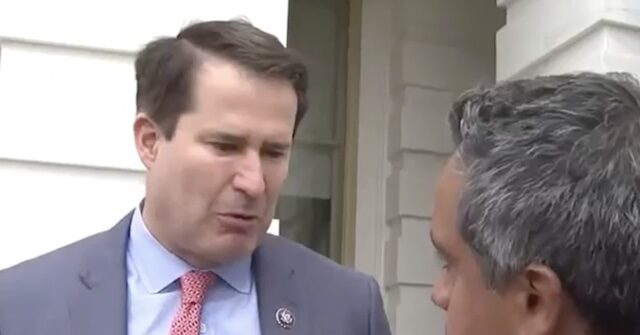On CNN’s “Inside Politics,” Representative Seth Moulton (D-MA) expressed concerns regarding the disconnection between the Democratic Party and the American electorate following the results of the 2024 election. He emphasized that the party’s leadership is now grappling with the grim reality of their situation and struggling to understand the reasons behind their electoral setbacks. Host Manu Raju highlighted the ongoing internal discussions among Democrats as they attempt to decipher the factors contributing to their poor performance. There is a notable lack of consensus within the party, with moderate Democrats arguing that the party has shifted too far to the left, while progressives claim they have failed to effectively communicate the merits of their policies. Both factions acknowledge that the party has struggled to resonate with voters who are increasingly unhappy about economic conditions and the overall direction of the country.
Raju pressed Moulton regarding the party’s biggest mistakes that require rectification. Moulton pointedly remarked that Democrats have lost touch with a significant portion of the American population. He criticized the tendency within the party to adopt a condescending tone toward voters, often suggesting that those who do not fully endorse a progressive agenda are morally inferior. This approach, he argued, is counterproductive and ultimately detrimental to the party’s electoral prospects. He believes that such attitudes not only alienate potential supporters but also fail to foster the necessary dialogue and understanding between the party and everyday Americans.
Hakeem Jeffries, the House Democratic leader, has initiated a series of listening sessions aimed at facilitating conversations within the party about the electoral losses. These sessions have reportedly been marked by tension as members discuss the party’s shortcomings in addressing critical issues such as border security and crime. The postmortem analysis emphasizes a need for a more robust engagement with voter concerns. Addressing these topics with the seriousness they deserve is crucial for Democrats to regain lost ground with the electorate. The reflective sessions reveal an urgent need for the party to reevaluate not only its policies but also its broader approach to communication with citizens.
The overarching sentiment among various factions of the Democratic Party is a realization that they need to reconnect with the electorate and better address their anxieties over economic and social issues. With economic insecurity and concerns about crime being major focal points for voters, there is an apparent need for the party to articulate clear, actionable solutions. This highlights the challenge for Democrats to transform their progressive ideals into messaging that resonates more broadly, beyond their base, and reaches out to moderates and independents who may feel overlooked.
Moreover, Moulton’s comments shed light on the potential pitfalls of allowing ideological purity to dictate the party’s actions and rhetoric. He suggests that continuously framing opposition as a moral failing risks disenfranchising a critical segment of voters who may otherwise align with some Democratic priorities. This calls into question the feasibility of uniting the party’s progressive and moderate wings while simultaneously appealing to the wider electorate. It emphasizes the importance of fostering a sense of inclusivity, understanding, and respect toward differing perspectives, which is essential for rebuilding trust and credibility with American voters.
In conclusion, the challenges facing the Democratic Party are multifaceted, requiring a nuanced understanding of electoral dynamics and voter sentiment. Moulton’s insights provide a path forward, urging Democrats to adopt a more empathetic, inclusive, and solution-oriented approach. Only through meaningful engagement with constituents can the party hope to rectify its disconnection and develop a winning strategy that addresses the pressing concerns of everyday Americans. As the party navigates this critical juncture, it must prioritize unity, open communication, and a genuine commitment to addressing the real issues that affect the lives of its constituents.

